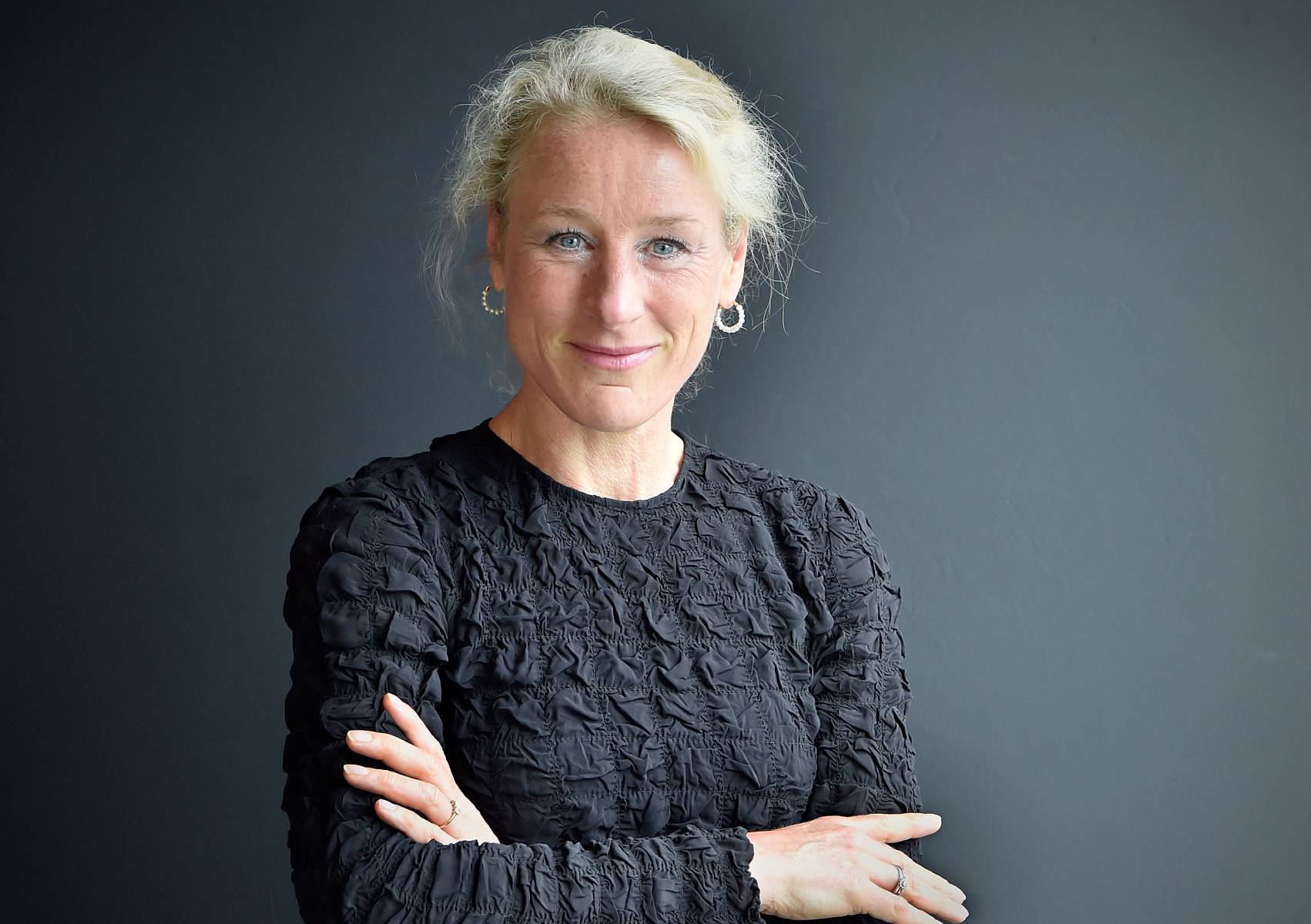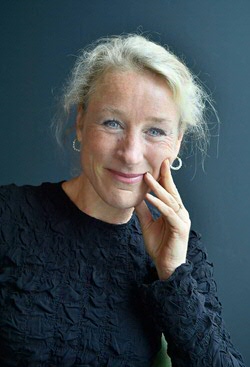‘Take a close look at the content of diversity training courses’

The first thing that Floor Rink, Professor of Organizational Behaviour, wants to put out there is that devoting attention to diversity in the workplace is always a good thing. But she also emphasises that we sometimes end up repeating ourselves. Organizations continue to offer the same training courses and introduce the same measures, even though these sometimes have a limited effect. How can we make existing initiatives more effective?
Text: Nynke Broersma, UG Communication Office / Photos: Elmer Spaargaren
‘What’s wrong?’ Rink apologises, stands up, and pokes her head around the door. Children’s voices can be heard in the distance. ‘Okay, I’ll be there soon, I’m busy at the moment!’ She closes the door and sits down again behind her computer screen. ‘You’re probably thinking, “Hmm, she is the average woman. White, married to a man, 35-45 years old, with young children at home”. But we have to move away from the idea that people like me are representative of all women.’
The average woman
There is no such thing as ‘the average woman’. It’s 2021. Surely we’ve known that for a long time now? Yet, studies on gender diversity in the workplace focus mainly on one particular type of woman. As a result, one dominant theory has emerged, explains Rink. ‘Social role theory states that the reason women aren’t equal to men is that women are stereotyped as being social, cooperative and modest, whereas men are seen as independent, strong and decisive. And these are exactly the qualities that also fit in with the image people have of an ideal leader.’
Stand up for yourself more!
Since there is a lot of empirical evidence to support social role theory, women’s leadership training often only focuses on disproving or re-evaluating that one stereotype, says Rink. ‘Either women are told to stand up for themselves more and be less modest, or to actually leverage their feminine qualities more and use them as an example of new leadership. But because this is all based on studies that focus on white women with children, the training courses are often only suitable for this group.’
For this reason, Rink, in collaboration with Edwina Wong and Michelle Ryan, among others, is investigating how the content of training courses can be tailored to women from different backgrounds. ‘We asked all kinds of women about the kinds of training courses they would actually like to follow, and what they would benefit from the most. The research showed that there is a systematic difference in needs depending on the ethnicity of the women.’

Prejudices
Are you Asian? Then you are competent, but also too modest. Do you have a dark skin? Then you stand up for yourself too much. Are you white? Then you have children and are struggling to find the right work-life balance. Rink’s research shows that women are particularly affected by this kind of intersectional prejudice in the workplace, rather than more general prejudices about being a woman.
The preliminary results show, for example, that African-American women (the research was largely carried out in the United States, ed.) often have to contend with the stereotype that they are not modest. And if, as an African-American woman, you only have the option of following a training course that teaches you how to become more assertive, you may think: “But I already struggle with the perception that I stand up for myself too much, and now I’m being told to do it even more.” Classic diversity training courses aren’t in tune with your unique experiences. We really need to hone in on this issue.’
First ask, then develop
In anticipation of my next question, Rink adds: ‘Now you can say: “That’s not really feasible, is it? Are companies then supposed to develop different courses for all those different women?” Well, no, that’s not what I’m saying. One diversity programme is enough, but before you start designing the content, you have to sit down together and find out what the needs are. I think that’s more than doable.’
Reward or punish?
In addition to providing training for women, many companies also offer courses to make their employees aware of racism, implicit or otherwise, and prejudice in the workplace. These trainings tend to emphasise the importance of being nice to each other and being inclusive. But is that enough? Yes and no, says Rink. ‘Everyone agrees that it is important to work in a safe, constructive culture. Offering rewards and support contributes towards this. But, recently, there have also been some voices saying that rewards alone aren’t yet producing the desired effect, so perhaps more sanctions should be introduced.’

What can and can’t you say?
But what kind of sanctions could companies use? Rink: ‘A few years ago, Facebook introduced a ‘no-just-jokes’ policy, for example. By doing so, they are saying that a silly joke might seem harmless, but it isn’t, and that from now on such behaviour will be punished.’
Rink and her colleague Laetitia Mulder, among others, are investigating the effectiveness of such sanctions. The research is still ongoing, but Rink is already able to draw one clear conclusion: ‘People react negatively to these sanctions, regardless of their own personal views on diversity. They feel that an organization has too much control over what you can or cannot say to each other.’
Smoking on the terrace
But just because people instinctively react negatively to such sanctions does not mean that they do not work, emphasises Rink. ‘Like so many studies, our research is just a snapshot. Even if people find sanctions annoying, they can still influence their behaviour. Take the anti-smoking campaign that was introduced a few years ago, for example. At the time, we hated all that over-regulation. But now we have internalized the rules and are disgusted when people do light up on the terrace. Perhaps the same thing will happen with sanctions against implicit racism. But we don’t know that at the moment.’
Cultural change
Looking to the future, Rink’s main goal is to investigate diversity issues using more nuanced methodologies. ‘For example, hardly any longitudinal research is being done on the effect of interventions. Sure, this kind of research is complex and time-consuming, but it’s also necessary. Because that knowledge can help cement a cultural change. And it might give organizations greater hope that they are tackling a difficult issue like diversity well.’
More information
Floor Rink works at the Faculty of Economics and Business. Her research focuses on Diversity, Supervision and Power.
| Last modified: | 07 June 2021 12.23 p.m. |
More news
-
24 March 2025
UG 28th in World's Most International Universities 2025 rankings
The University of Groningen has been ranked 28th in the World's Most International Universities 2025 by Times Higher Education. With this, the UG leaves behind institutions such as MIT and Harvard. The 28th place marks an increase of five places: in...
-
05 March 2025
Women in Science
The UG celebrates International Women’s Day with a special photo series: Women in Science.
-
16 December 2024
Jouke de Vries: ‘The University will have to be flexible’
2024 was a festive year for the University of Groningen. In this podcast, Jouke de Vries, the chair of the Executive Board, looks back.
